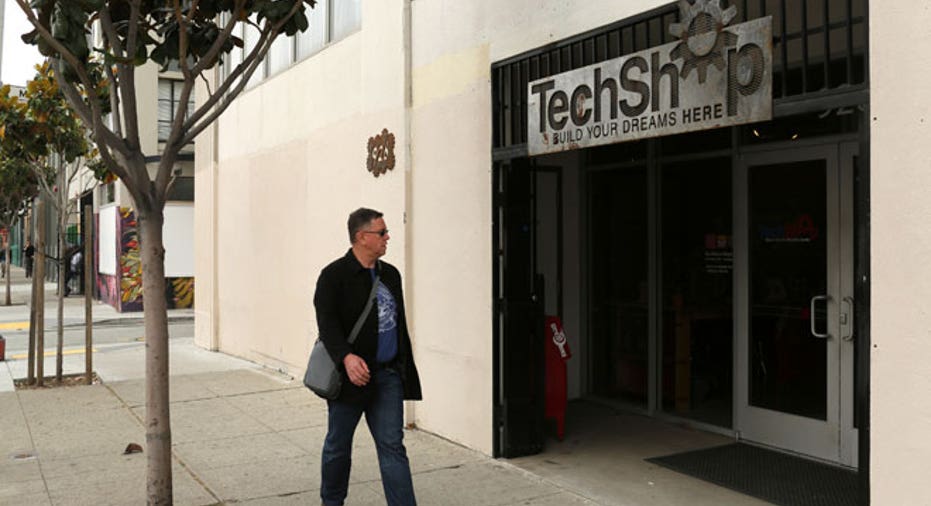Why Can’t Silicon Valley Use Plain English?

There are two kinds of people in the tech world: Those who use plain English and those who speak in code. I used to think that being able to explain complex concepts in simple terms was a prerequisite for running a technology company. Now I’m not so sure.
It’s sort of surprising how many of the tech elite can’t communicate with regular folk outside the Silicon Valley bubble. Which is ironic because, now more than ever, they have our attention. People really are into this stuff in a big way but they shouldn’t need a decoder ring to interpret what they’re hearing.
The funny thing is, some of the geekiest young coders are the ones who actually know how to say what they mean when talking to a broad audience.
On stage at this week’s Code Conference, 24-year-old Snapchat CEO Evan Spiegel, talked about a limitation of the messaging app: “In order to view a video on our service you have to literally put your finger on the screen the whole time,” he said. “I think, for us, it’s holding us back from longer videos being viewed on our service because it’s just kind of annoying to hold your finger there that long.”
Even if you’ve never used Snapchat, you know exactly what he meant.
But when asked about Millennials’ preference for experiences over things, Eventbrite co-founder Julia Hartz said, “So you see this area of experientialism over materialism that really drives this need to connect … Millennials are sharing their live experiences online, which is driving social capital. So you know the selfie is the ultimate social capital these days, which is driving the promotion of live experiences.”
Huh? Couldn’t she just say, “Sharing live events online makes Millennials popular; owning stuff doesn’t?” I know; the lack of jargon is so unimpressive.
And when he was asked if an exit for the business matters, Spiegel said, “That really matters. We need to IPO. We have a plan to do that. Obviously I can’t give you much color there.”
Can’t get much more straightforward than that.
Meanwhile, when asked more or less the same question, Hartz sounded like a politician, going on for a full minute without really saying much of anything.
Personally, I think she missed her calling.
When asked to comment about the growing tech bubble, Zillow CEO Spencer Rascoff said, “The topic of allegedly excessive valuations of private companies is something that people should be talking about more. Nobody wants to talk about the “B” word, bubble, because nobody wants it to pop on their watch.”
In other words, someone should talk about it, but not me.
In case you’re having a little trouble interpreting the code, here’s a helpful guide:
Users: Customers. Consumers. People. Folks. Saps.
Content: Free stuff used by tech companies to make big bucks while their creators fight over the scraps.
Empowering the masses: Getting a billion people to generate massive amounts of free content that generate countless billions in ad revenue for tech giants.
Brands: Corporations, but just the high-quality, cause-conscious kind like Whole Foods and Starbucks as opposed to the evil kind like Comcast and Monsanto.
Share of wallet: The money consumers spend on tech while dumpster diving for food.
Content marketing: Spamming customers.
Engaged users: Addicts.
Massive adoption: Mass addiction.
Early Days: Time to focus on growing and engaging users and raising enormous amounts of venture capital at sky-high valuations; no need to worry about little things like revenues and profits.
Exit: When startups go public (IPO) or get acquired. Party time.
Internet of Things: Internet companies doing to every inanimate object on Earth what they’ve already done to all our brains: say they’re making them smart while actually making them dumb.
Sharing Economy: When people rent their homes, bodies, services and whatever’s left of their dignity for peanuts.
Selfies: Social Capital: Blatant narcissism.
Experientialism: Going to concerts to get attention on social media.
Entrepreneur: 1: A person who starts a business and is willing to risk loss in order to make money (Merriam-Webster). 2: A person who thinks about it.
Growth hacking: Marketing.
The Hacker Way: 1: Move fast and break things (Mark Zuckerberg). 2: When apps continuously change policies so people have no idea how their information is being used.
Contextual Advertising: Snooping on customers’ information and habits to blast them with ads and enable their spending addiction.
Streaming video and audio: Pirated copyrighted content.
Awesome: Life in the tech bubble.



















